The African fashion scene is bursting at the seams. The industry is reaching new heights globally, collaborations are thriving and, as the Africa Fashion exhibition that ran last year at the Brooklyn Museum shows, African designs are incredibly diverse and dynamic. While the continent’s talent continues to grow, one aspect of the scene remains overlooked: the powerful efforts of queer designers.
Across the continent, homophobia and toxic masculinity restrict the way people express themselves and their talents. Some blame the legacy of colonialism and its enforcement of rigid gender roles; others blame local elites, secular and religious, who exploit that legacy. It is often dangerous to be unconventional and non-conforming. But there are signs of hope: many Gen Z African men seem to be less bothered about what other people think about their fashion choices and many are changing the toxic narrative and promoting freedom of expression.
Certain expressive designers have borne the brunt of toxic masculinity, becoming targets of destructive, misinformed criticism; their visibility has taken a hit in recent years. But their designs continue to speak volumes.
One emerging trend is the embrace of non-gender-specific designs. With impressive tailoring skills, these designers have embraced androgyny as the future of African fashion.
I sat down with the designers behind three African labels to discuss how they are weaponizing androgyny as a way to confront African conservatism. While these designers continue to create fashions that champion creative expressiveness within an often conservative industry, they hope their work contributes to the larger conversation around queer activism in Africa. Even though the future of LGBTQ+ rights in several countries looks grim, these designers are still hopeful for the future and for future change.
Muyishime
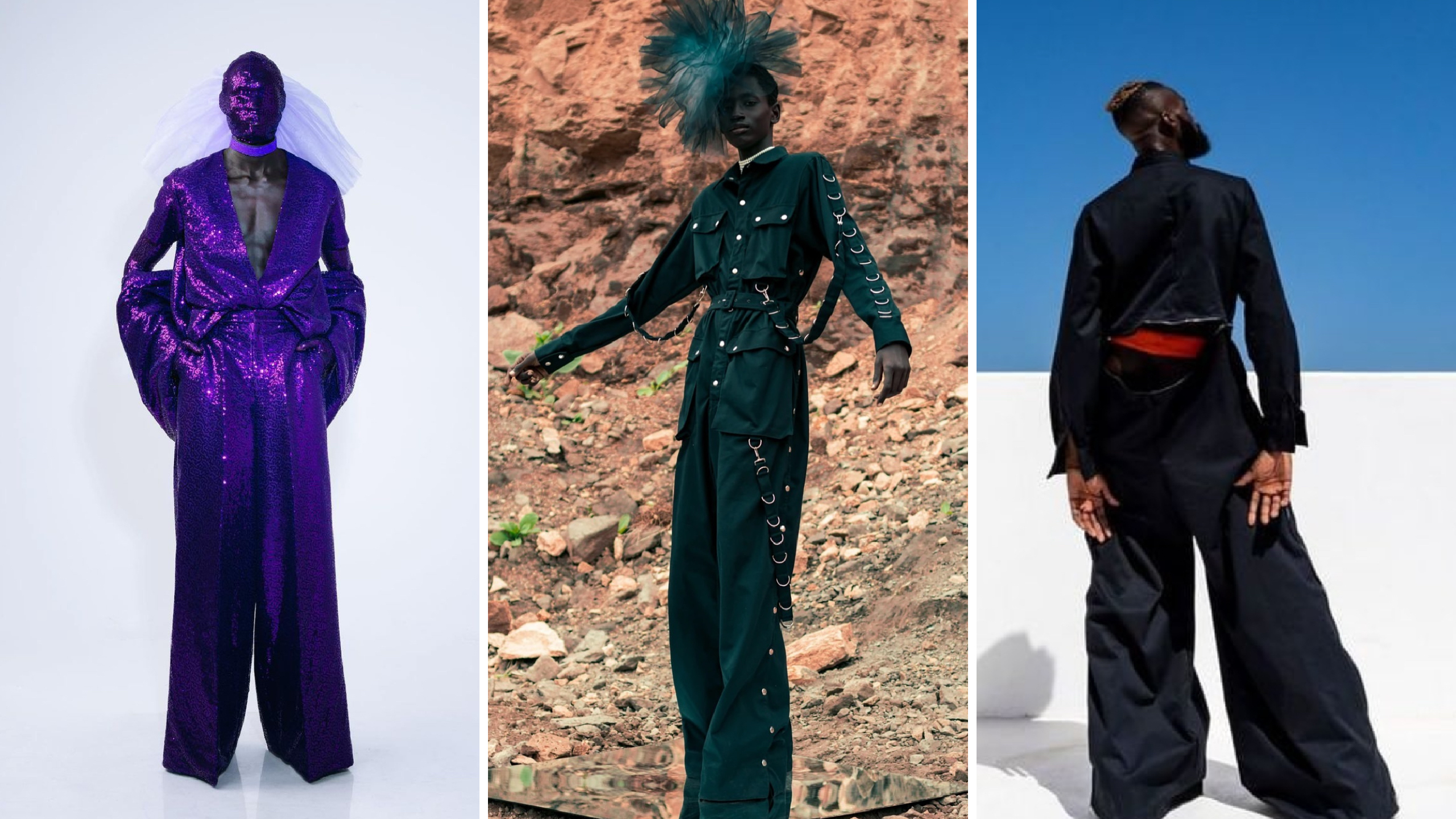
Kenyan designer Muyishime Eddy Patrick has been in the forefront of two wars: against the person he was expected to be and against the toxic masculinity in the Nairobi scene. Then, one day, in a moment of inspiration, he made himself a crop top, corset and pants. “I had the feeling of not being myself to the fullest and it made me depressed,” Patrick recalls. “I couldn’t bear to feel like I was hiding who I really was behind boring pieces of clothes. Finally, one day, I picked a machine and made something. Everyone around me was giving me confidence.” At that moment, Patrick lost much of his fear.
He started his eponymous brand Muyishime in 2016 while studying for a BA in fashion design and marketing. For him, it was a form of activism in the Kenyan fashion scene with his label’s mission of inclusivity and difference. The indie brand is built on couture-like outfits: extravagant bow-tie tops, puffy fur coats and long, corseted dresses.
Patrick’s love of fashion has a family pedigree. “My grandfather was a coat-maker and then he passed it down to my mother, who became a seamstress and then she passed it down to me,” he says. Raised by his mother, he was always fascinated by her outfits and how they shaped her identity. Through her influence, Patrick knew everything about sewing before he turned 10. His first clients were his dogs. “I had a lot of dogs and I would use scraps of textiles left to make garments for them. I also made garments for the neighbours’ dolls and the girls were happy. That was how I grew interest in garment-making, and that has made me into the designer I am now,” Patrick says.
Maye Tobs
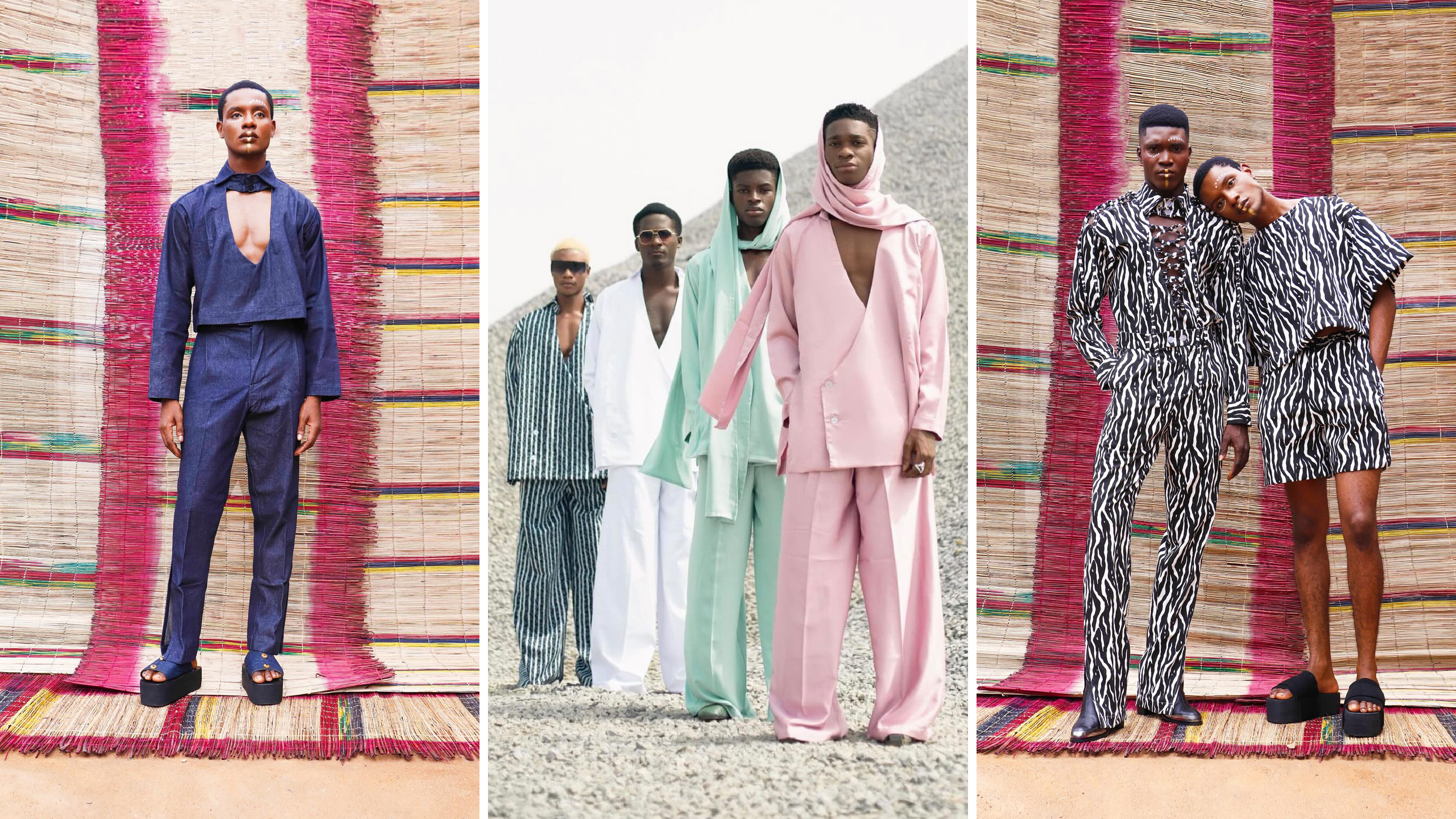
Designs by Lagos-based label Maye Tobbs. Credit: Aremu Oluwatobi, bangraphy
“Fashion helped me create the exact kind of world I wanted to live in,” says Manuel Tobs, a designer based in Lagos, Nigeria. Growing up, Tobs always wanted to stand out; he loved that he grabbed the spotlight each time he walked into a space. And yet it still came as a shock that he’s making it as a designer. “I always thought, even if I end up in the fashion industry, it would be as a stylist. My mind was never ready to deal with the whole fact that I could become a designer until I got into it,” he tells Xtra.
His fashion brand, Maye Tobs, founded in 2017, but officially launched in 2020, was created to afford him a space to craft unconventional pieces that he rarely saw elsewhere in the industry. “A lot of people, especially queer people, always complimented my style and always said it was different, some even always wanted it,” he says. “I knew the direction was to be androgynous, and I knew that there weren’t a lot of androgynous brands at the time, and the few that were around weren’t affordable. So it really was [born out of] a feeling to take a step forward. And that’s exactly what I did.”
He has since designed three collections: the first in 2021, called “Lost,” was inspired from what Tobs refers to as “inner beauty.” The second in 2022, called “Outcast,” was inspired by those who do not fit into societal norms, featuring long sleeved crop tops, cross-corsets, leathers. And the third from last year, which he called “Resort Collection ’23,” featured corset tops and flowery pleated pants paired with traditional Nigerian designs.
“Androgyny isn’t an easy sell,” Tobs says, noting he has to work doubly hard to keep his label afloat. But he would never compromise on his vision. Ultimately, he feels success in the fashion industry in Africa requires being true to himself. “I’m going to be honest, when you fake things, a lot of times people can see through you. I always believe that one way or another, my work is going to speak for me. And that’s exactly how I carry myself,” he says. “LGBTQ+ people are not going anywhere: they live, they are humans and they are here to stay. And same goes for [queer] designers too. We might not be accepted yet, but it sure doesn’t mean we won’t be. I think the sky is big enough for birds to fly and I believe one way or another, LGBTQ+ designers are already breaking into space. Might take a while for the job to get done, but it will definitely happen.”
Udiahgebi
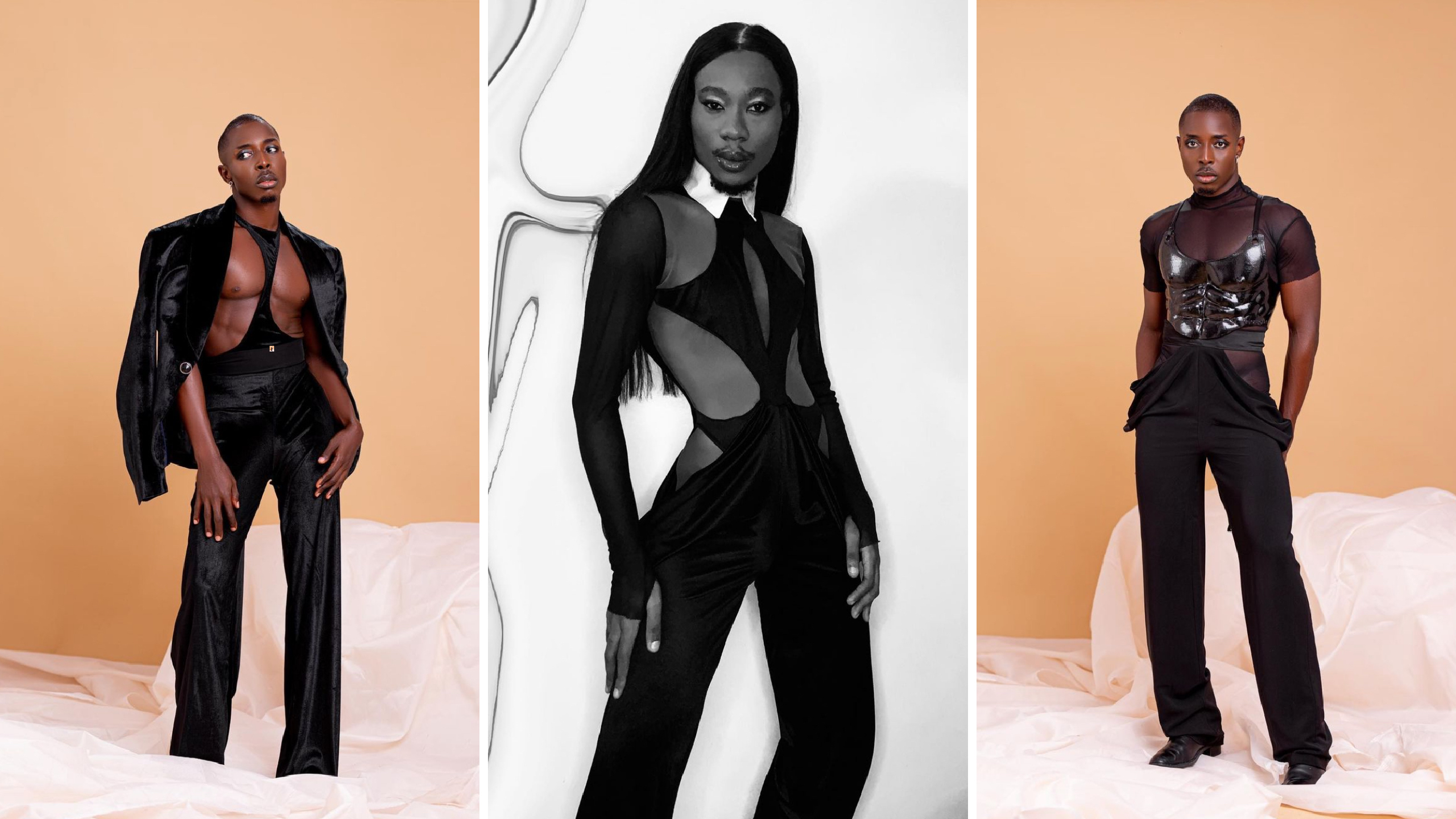
Designs by Lagos-based label Udiahgebi. Credit: Praiz ikechukwu
Emerie Udiahgebi felt that something was missing from the fashion industry in Nigeria, something he calls “representation through style expression.” So he founded his eponymous fashion brand in the middle of the pandemic, hoping to create a utopia for an audience whose style wasn’t yet visible in the fashion scene. His indie brand Udiahgebi totally deconstructs the norm, offering a new perspective to clothing: fresh, queer and sassy. His designs include velvet suits, well-tailored jumpsuits, ripped suit jackets, with male models often styled with makeup and long wigs.
Udiahgebi’s path to fashion wasn’t planned; growing up, he aspired to be a lawyer—tailoring just felt like a hobby. He traces his earliest fashion memory to the year 2001, when he had made a doll dress and was lucky to have his father photograph the moment. But taking a journey into fashion hasn’t been an easy fit, especially as a queer designer trying to build a different aesthetic. “It’s perceived as vulgar due to the bold cutoffs,” he says. “My brand’s aesthetics revolve around sensuality and body positivity and in the earlier days of my career growing up in Enugu, a small, quiet city in eastern Nigeria, [it was] hard to grow an audience there because of its conservative nature.”
Confident in his own abilities, Udiahgebi stays true to his mantra to make unconventional designs. He’s currently based in Lagos and takes inspiration from the Udiaghebi tribe, the young crowd hungry for his look. And it has worked. His latest collection, titled “Monumenta,” pays homage to the musical stars he grew up listening to in the late ’90s and early 2000s like Toni Braxton, Ashanti, Michael Bolton, Mariah Carey. The collection epitomizes craftsmanship and charm.
One day, Udiahgebi hopes to be as big as Oliver Rousteing, the creative director of Balmain. His ambition is infectious. “I always say the time is coming. One day we will no longer attach gender to garments. There is a fast rise of LGBTQ+ people choosing to live without shame. It’s a slow process, but I’m sure with time the field will be open for more queer and authentic designers,” he says.
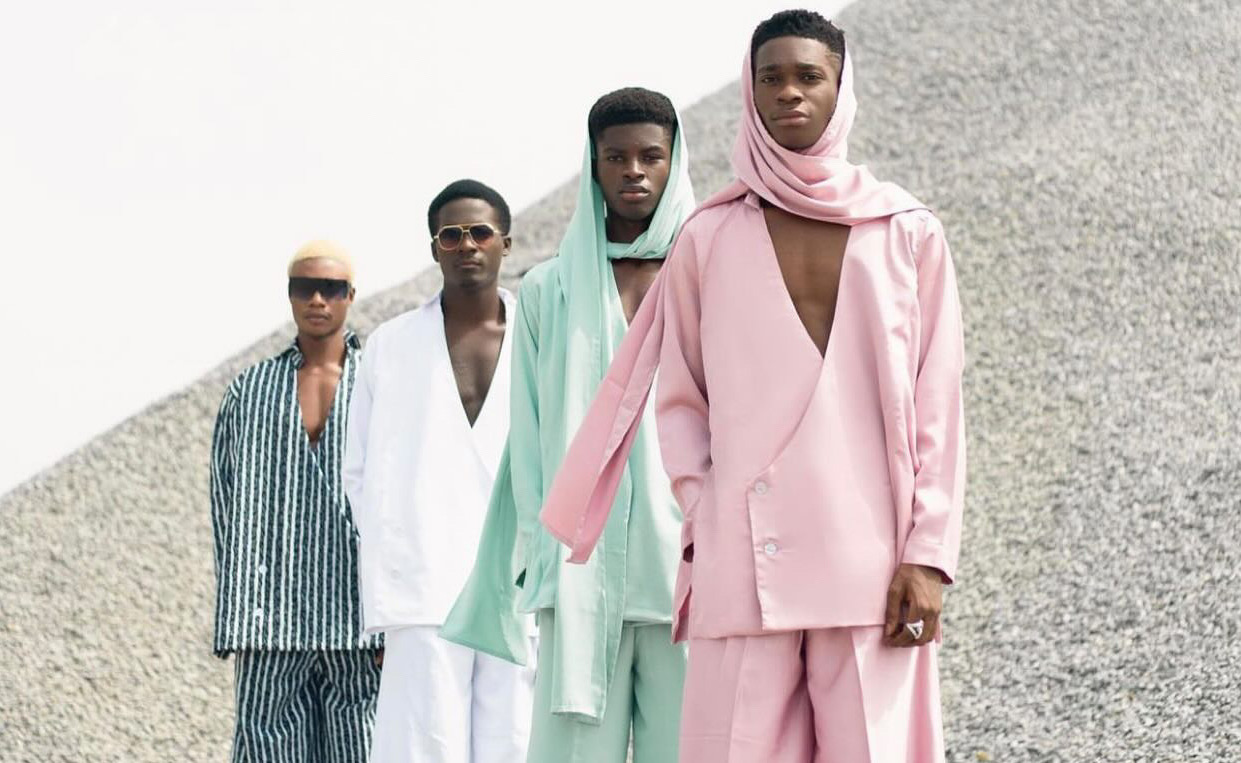
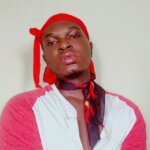
 Why you can trust Xtra
Why you can trust Xtra


